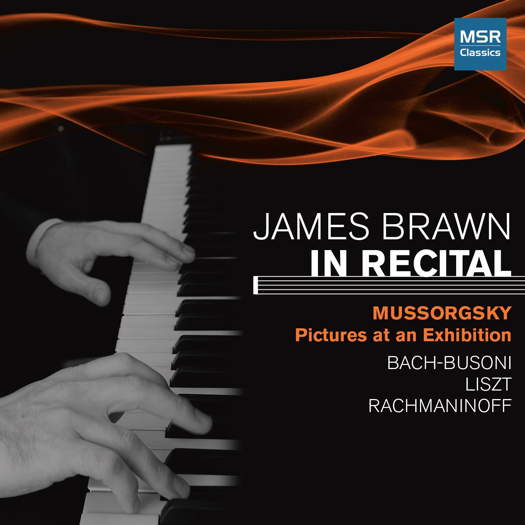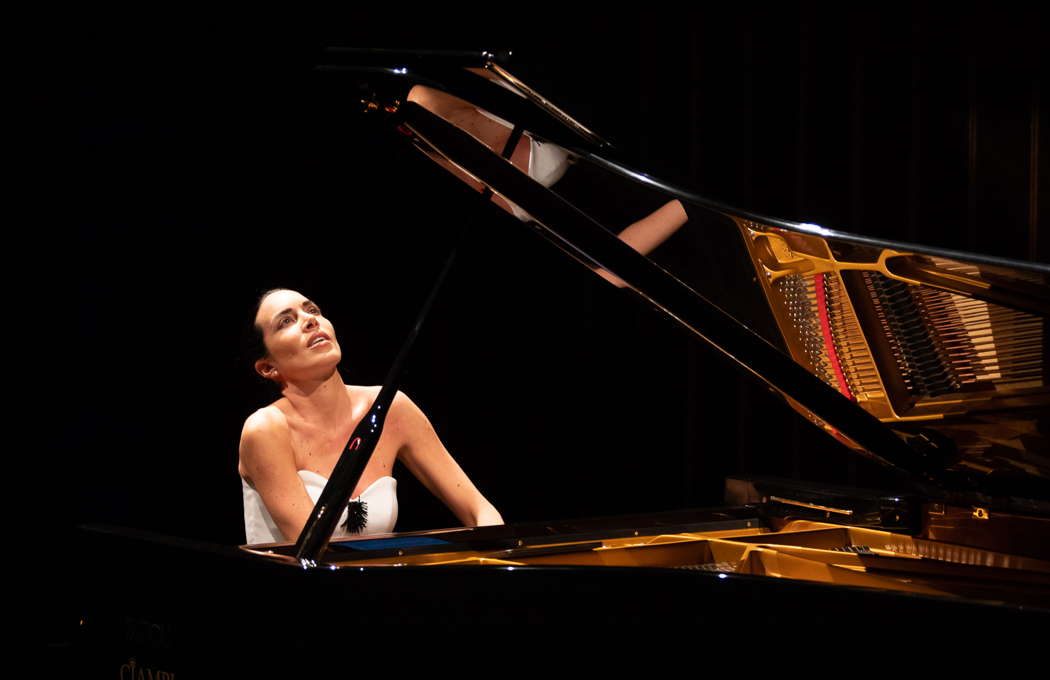 SPONSORED: CD Spotlight. True Command - James Brawn plays Bach, Liszt, Musorgsky and Rachmaninov - recommended by Andrew Schartmann.
SPONSORED: CD Spotlight. True Command - James Brawn plays Bach, Liszt, Musorgsky and Rachmaninov - recommended by Andrew Schartmann.
All sponsored features >>
 DISCUSSION: John Dante Prevedini leads a discussion about Composers, individuals or collective?, including contributions from David Arditti, Halida Dinova, Robert McCarney and Jane Stanley.
DISCUSSION: John Dante Prevedini leads a discussion about Composers, individuals or collective?, including contributions from David Arditti, Halida Dinova, Robert McCarney and Jane Stanley.
- Argentine
- Richard Bradshaw
- Michael Tremberth
- Giuditta Angiola Maria Costanza Negri
- Shultis
- Kosmos Tirana Music Festival
- Carlo Gozzi
- New Opera Company
Chopin Forever
GIUSEPPE PENNISI listens to Gloria Campaner
Chopin is very present in Rome in these last weeks of 2022. Concerts of his music were heard in the capital's three major concert institutions. At the beginning of the month, two concerts were performed by Alexander Gadjev at the Academia Nazionale di Santa Cecilia and by Leonora Armellini at the Istituzione Universitaria dei Concerti (IUC); the last of these two was reviewed here on 5 December. On 15 December 2022, at the Teatro Argentina, as part of the 2022-23 program of the Accademia Filarmonica Romana, there was a third concert. This time, the concert was entrusted to Gloria Campaner. Romanticism, therefore, reigns. The audience likes it, judging by the turnout at the concerts of the IUC and the Filarmonica Romana. (I did not attend the Academia Nazionale di Santa Cecilia concert.)
It was nice to see the Teatro Argentina (which Stendhal called 'the most elegant in the world') almost full, both in the stalls and in the boxes, on a rainy evening in Rome when it was difficult to find a taxi. I was in box 4 of the first tier - quite close to the stage.
One or more of these determinants attracted the audience:
- Gloria Campaner, an internationally known and appreciated pianist, announced that, after this concert, she will take a long sabbatical.
- one of the first public appearances of the very popular writer Alessandro Baricco, who on 22 January had announced that he was suffering from a serious form of leukemia (now overcome). He is the companion of Ms Campaner.
- a monographic program, not anthological like those of Mr Gadjev and Ms Armellini.
In fact, the program included only one piece - about seventy minutes and composed of twenty-four short parts: the Preludes Op 28, a collection of compositions written between 1831 and 1839, one for each musical key and modes, both major and minor. Although usually the term prelude is used to indicate a composition with the task of introducing another, longer and more articulated piece, the twenty-four Chopin preludes must be considered and analyzed as a work in its own right.
In addition to Op 28, Chopin wrote two more preludes; one in A flat major, published only in 1918, dated 10 July 1834 and dedicated to Pierre Wolff; the other, better known, in C sharp minor, Op 45, was composed in August 1841 and dedicated to Princess Tchernischeff.
Chopin wrote some of the Preludes during his stay in Valldemossa, a town near Palma de Mallorca, where he went, between November 1838 and February 1839, together with George Sand for health reasons; they were looking for a healthy climate, compared to rainy Paris, to try to counteract the pulmonary tuberculosis from which the composer suffered. The musician, before leaving, had asked his friend Camille Pleyel to send him a piano to the island; the instrument was slow to arrive and Chopin was forced to rent one, of poor quality, in order to continue to compose and finish the writing of his Preludes. As soon as the pieces were completed, they were sent to Julian Fontana for copying. Negotiations for publication were rather laborious. When the composer finally arrived in Paris, the twenty-four preludes were purchased by Pleyel and later printed by Adolphe Catelin in Paris in June. Then they were printed by Wessel in London and by Breitkopf & Härtel in Leipzig, also in 1839.
There is no certain date of the first performance. Chopin certainly played them in October 1839 on an evening in front of Moscheles and Meyerbeer, arousing their admiration. Since the beginning of the twentieth century, the Preludes have become a real standard for pianists, as evidenced by the long series of recordings of the work since 1926.
Chopin's Preludes were often, over the years and centuries, referred to as 'worthy successors' to the twenty-four Preludes of Johann Sebastian Bach's The Well-Tempered Clavier, also composed so as to have one for each key in the two modes, major and minor. The substantial difference is that Bach's work is structured in two books of twenty-four preludes and twenty-four fugues each, while Chopin does not offer a continuation to his preludes.
The publication of the Preludes caused quite a stir in the musical environment of the time. On the one hand, Chopin defied any classical rule, devoting his creations to an obvious lack of form. On the other, he derogated from the conventions of the period for the short duration of the compositions contained in the work. (Just consider how no prelude is shorter than thirteen bars, but at the same time none of them exceeds eighty-nine bars in length.) This Chopin work paved the way for other composers, first of all Claude Debussy who, with his two collections of Préludes, reconnected with the achievements of the Polish musician creating compositions no longer linked to tonality and that eschew any formal classification. Rachmaninov later resumed this, with his two series of Preludes, writing in major and minor modes.
Gloria Campaner is well-known and appreciated internationally. She has performed, among other countries, in England, China, Lebanon, South Africa, Spain, Japan, United States, Myanmar and South America. She has devoted herself to chamber music. She is interested in contemporary music and has performed world premieres of works by composers such as Marton Illès, Marcello Abbado, Jörg Widmann, Vittorio Montalti and Giovanni Sollima. She is artistic director of the Vincenzo Bellini Music Association of Messina and holds the chair of piano at Nelson Mandela University in Port Elizabeth. So, she was much awaited in Rome where she does not play frequently.
In the performance, she emphasized, with mastery, the alternation of the two modes in the twenty-four small pieces in which the Preludes are articulated, giving a true cheerful character, brilliant to those in a major mode and a sad, gray and melancholic one to those in a minor mode.

Italian pianist Gloria Campaner playing Chopin at the Teatro Argentina in Rome on 15 December 2022. Photo © 2022 Marta Cantarelli
The audience reacted with applause and requests for encores, to which Ms Campaner responded with Chopin's Waltz No 7, Op 64 No 2.
Copyright © 18 December 2022
Giuseppe Pennisi,
Rome, Italy

CLASSICAL MUSIC ARTICLES ABOUT ROME


